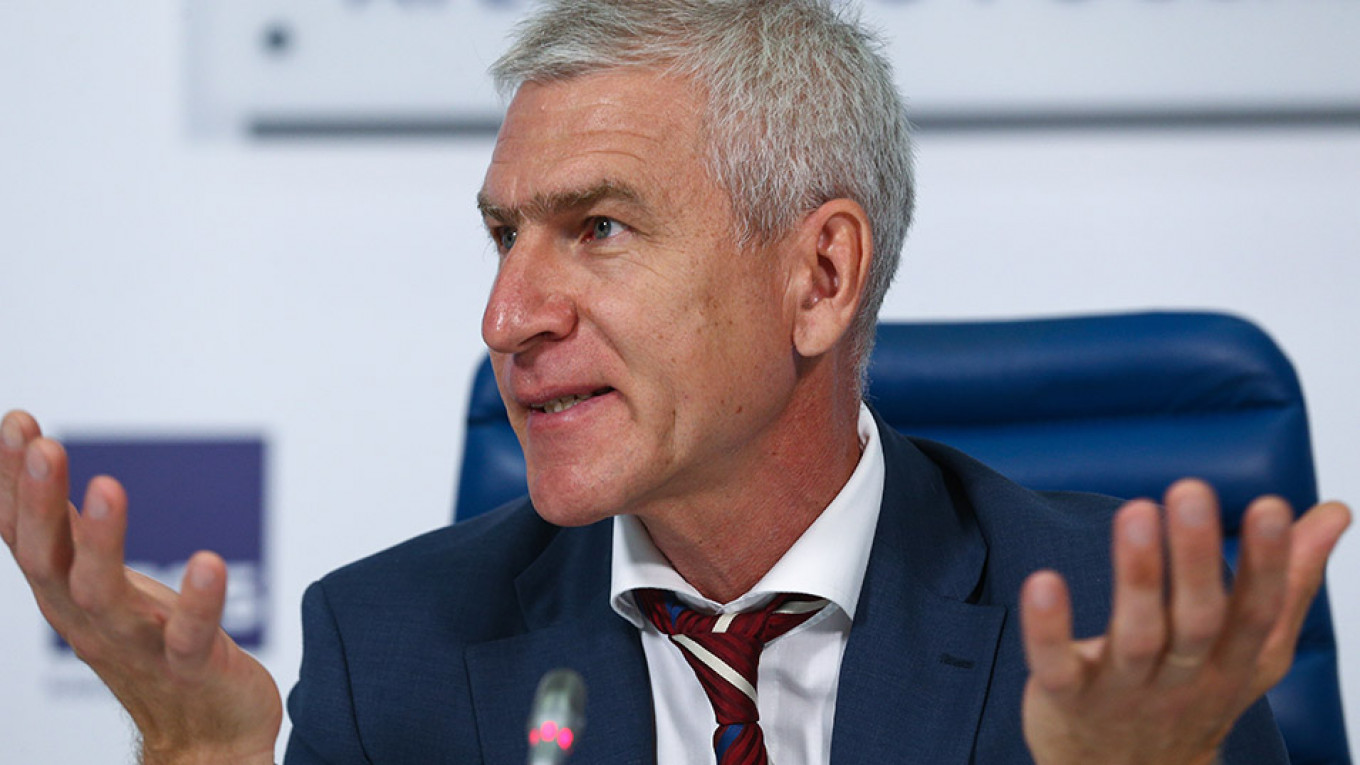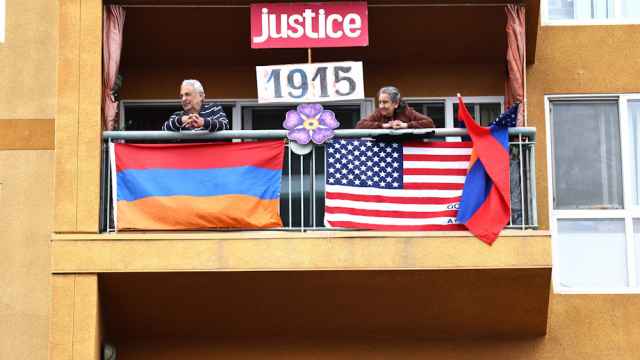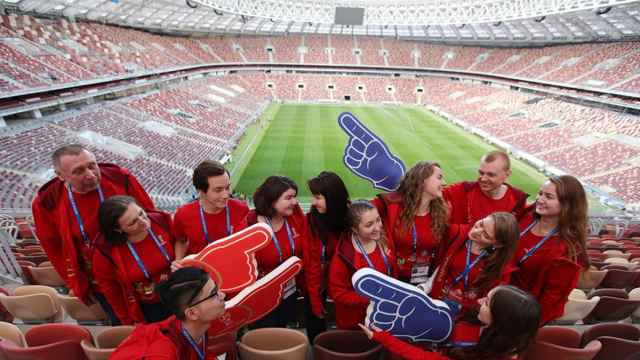Russia’s new Sports Minister Oleg Matytsin was convicted for abuse of office as the head of a university a decade ago, according to past media reports that resurfaced following his appointment this week.
Matytsin, 55, was one of several new faces named to Russia’s cabinet Tuesday following President Vladimir Putin’s shake-up of the political system last week. Matytsin takes over the Sports Ministry as Russian athletics grapples with a long-running doping scandal that led to Russia being banned from this summer’s Olympics.
In March 2012, a Moscow court found Matytsin guilty of exceeding his authorities by leasing out university land to a now-liquidated market in 2001-2006, the RAPSI legal news agency had reported.
The new sports minister headed the Russian State University of Physical Culture, Sports and Tourism, whose graduates include legendary Soviet goalkeeper Lev Yashin, from 2001-2006.
The Izmailovsky district court fined him 20,000 rubles ($320 at the current exchange rate). Investigators estimated damages at 120 million rubles ($1.2 million at the current exchange rate).
Matytsin did not admit his guilt, RAPSI reported at the time. His defense maintained that leasing out land to the Izmailovsky market added to the Russian budget instead of straining it.
The Moscow City Court released Matytsin from punishment in July 2012 due to the statute of limitations, according to RAPSI.
Matytsin had been the president of the International University Sports Federation since 2015.
It was not immediately clear what implication Matytsin’s past conviction would have on his current post. Russia’s Sports Ministry and other government officials have not yet commented on Matytsin’s past.
Putin’s proposals last week to shift the power structure in Russia’s government was widely seen as an attempt to keep his grip on power after 20 years as Russia’s president or prime minister.
A Message from The Moscow Times:
Dear readers,
We are facing unprecedented challenges. Russia's Prosecutor General's Office has designated The Moscow Times as an "undesirable" organization, criminalizing our work and putting our staff at risk of prosecution. This follows our earlier unjust labeling as a "foreign agent."
These actions are direct attempts to silence independent journalism in Russia. The authorities claim our work "discredits the decisions of the Russian leadership." We see things differently: we strive to provide accurate, unbiased reporting on Russia.
We, the journalists of The Moscow Times, refuse to be silenced. But to continue our work, we need your help.
Your support, no matter how small, makes a world of difference. If you can, please support us monthly starting from just $2. It's quick to set up, and every contribution makes a significant impact.
By supporting The Moscow Times, you're defending open, independent journalism in the face of repression. Thank you for standing with us.
Remind me later.






